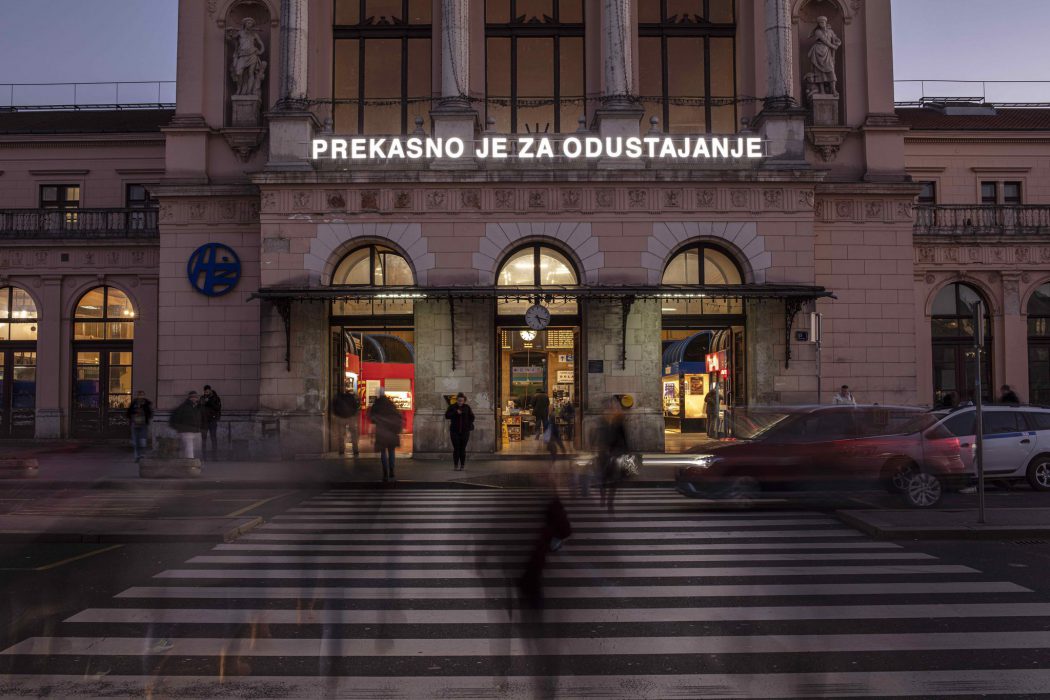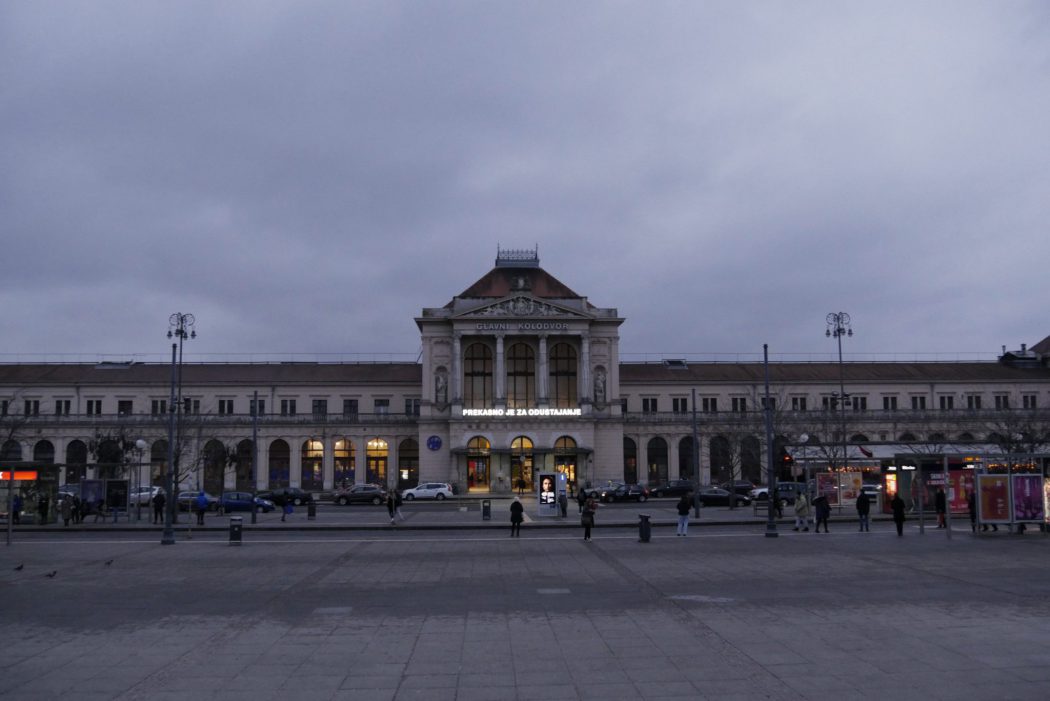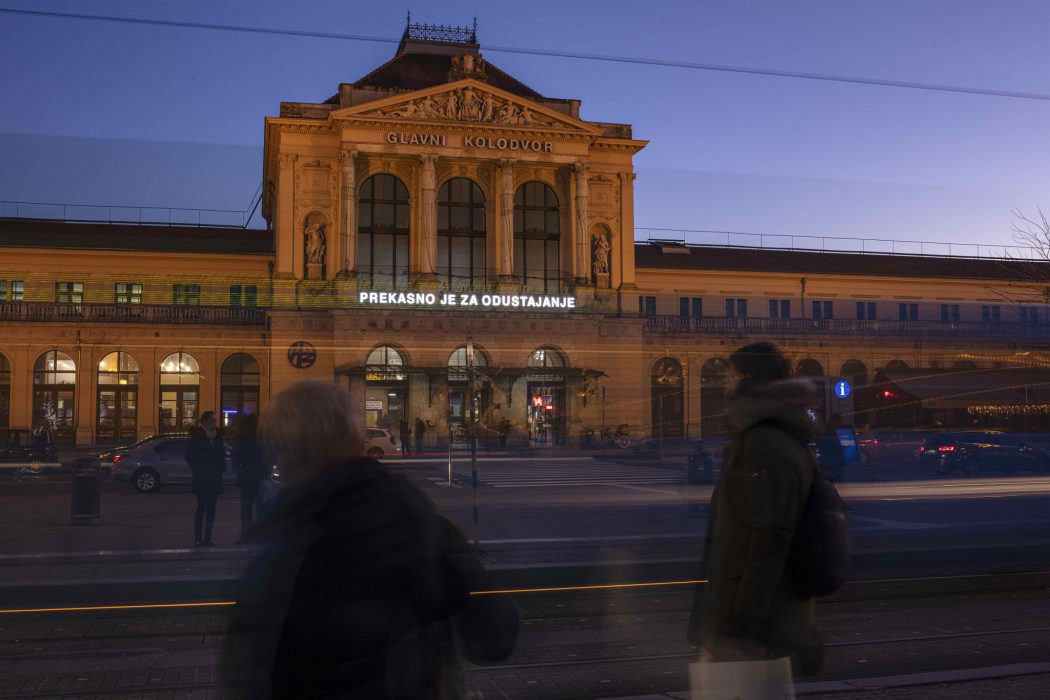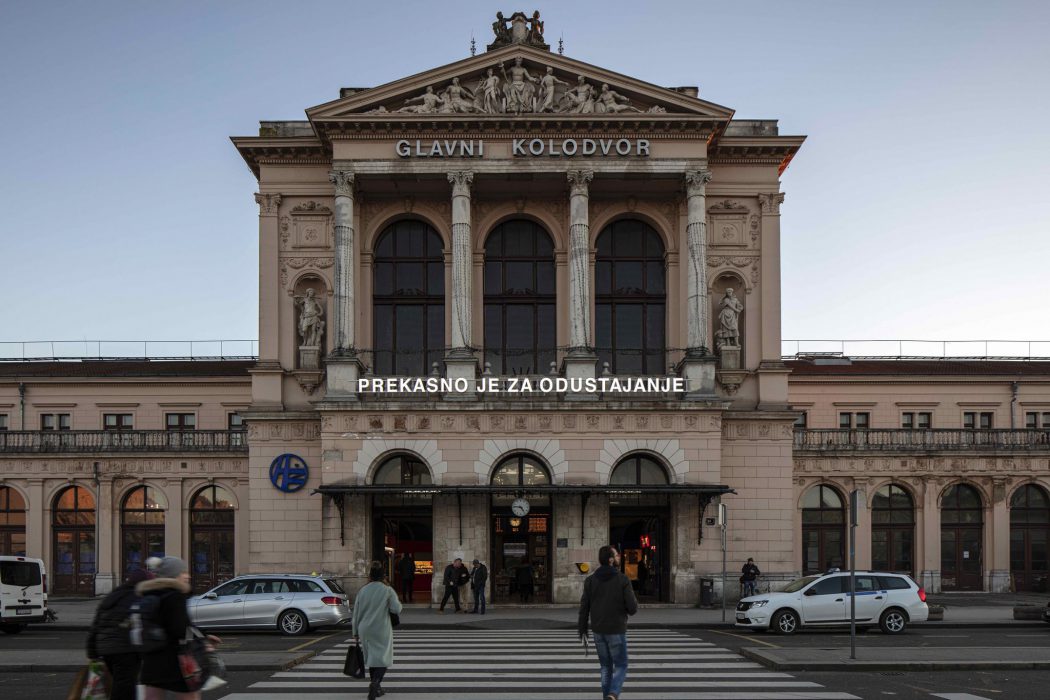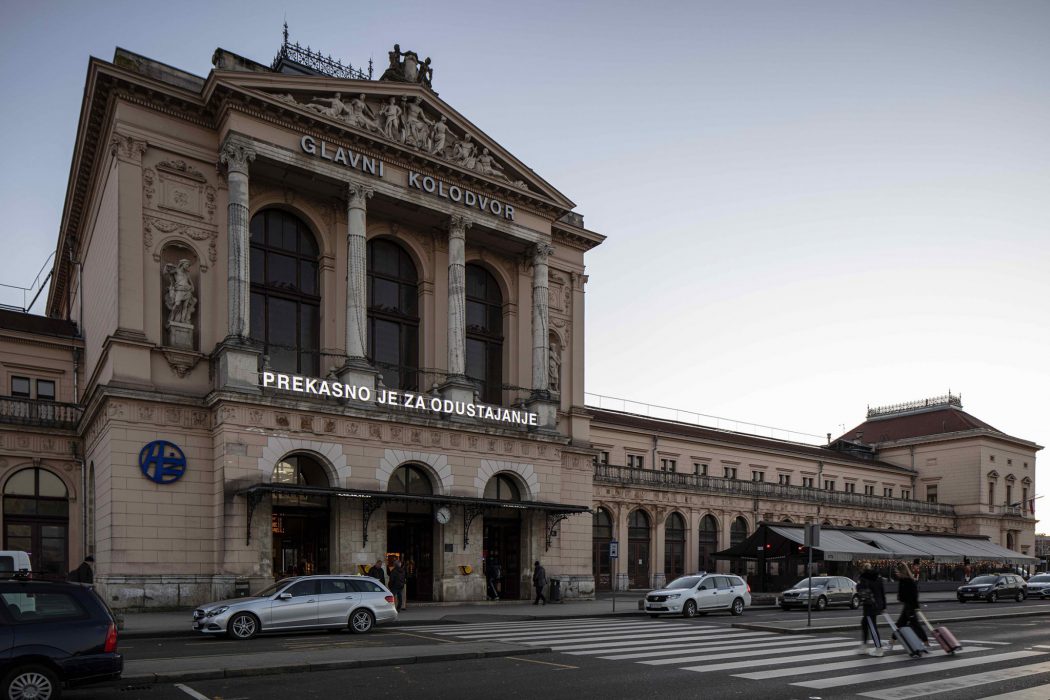On the façade, above the main entrance on the building of the Main Train Station, she sets up an illuminated sign that reads It’s Too Late to Give Up. It resembles guerrilla poetry. Wall graffiti. In The Pleasure of the Text, Barthes says “… there is nothing more voyeuristic than a written wall, because nothing is observed and read so intensely. (…) The grammatical difference between the passive and the active (is) abolished.” The longed-for alignment is conveyed by Angelus Silesius’ verse “The eye by which I see God is the same eye by which He sees me.”[1]
The sentence from the railway station asserts urgency, but also the temporal situation in which categories that denote before and after touch and cancel each other, producing the effect of reversal and surprise. Addressing passers-by, travellers, people waiting or going somewhere, as well as those waiting at tram stops on their daily commute, with their worries and preoccupations, hopes and fears, the sentence introduces a poetic and contemplative situation into public space, potentially creating a new community space. Nobody has written on the wall – yet everybody is reading.[2]It is also a community of solidarity because it congregates around the positive idea of perseverance.
The train station is the hub of migrant routes. The place of refuge and defection of people forced to leave. The artist therefore translated the sentence into English and the language of countries they come from: Arabic, French, Farsi, Spanish, German and Kurdish, and printed it on postcards and engraved it on a plaque that she placed at the entrance to the station. As a welcome and an expression of hope and as a tribute to their suffering. “Language has an infinite potency”, reminds Bifo, “but the exercise of language happens in finite conditions of history and existence. Thanks to the establishment of a limit, the world comes into existence as a world of language. Grammar, logic and ethics are based on the institution of limit. But infinity remains unmeasurable.”[3]Poetry, and I would say art in general, is freed from the limits of the signified. With its use of language, it reopens the infinite excesses of the established meaning of words.[4]The urgent situation leaves no more room for negotiations. If opportunities are narrowed in the face of natural disasters and global social collapse, and if more than the palliative, that Byung-Chul Han talks about, is needed for the Earth to survive, we should still not forget its fundamental determinants – welfare, care, and empathy for the other.
(excerpt from the catalogue text by Irena Bekić: If We Lose the NOW, When Will We Stand up?)
[1]Roland Barthes, Varijacije o pismu, prev. Vanda Mikšić, u Užitak u tekstu, Meandar, Zagreb, 2004, p. 80.
[2]Ibid
[3]Ibid, p. 151.
[4]Franko Bifo Berardi, Pobuna: o poeziji i financijama, prev. Igor Dvoršćak, Sandorf & Mizantrop, Zagreb, 2018, str. 126.
